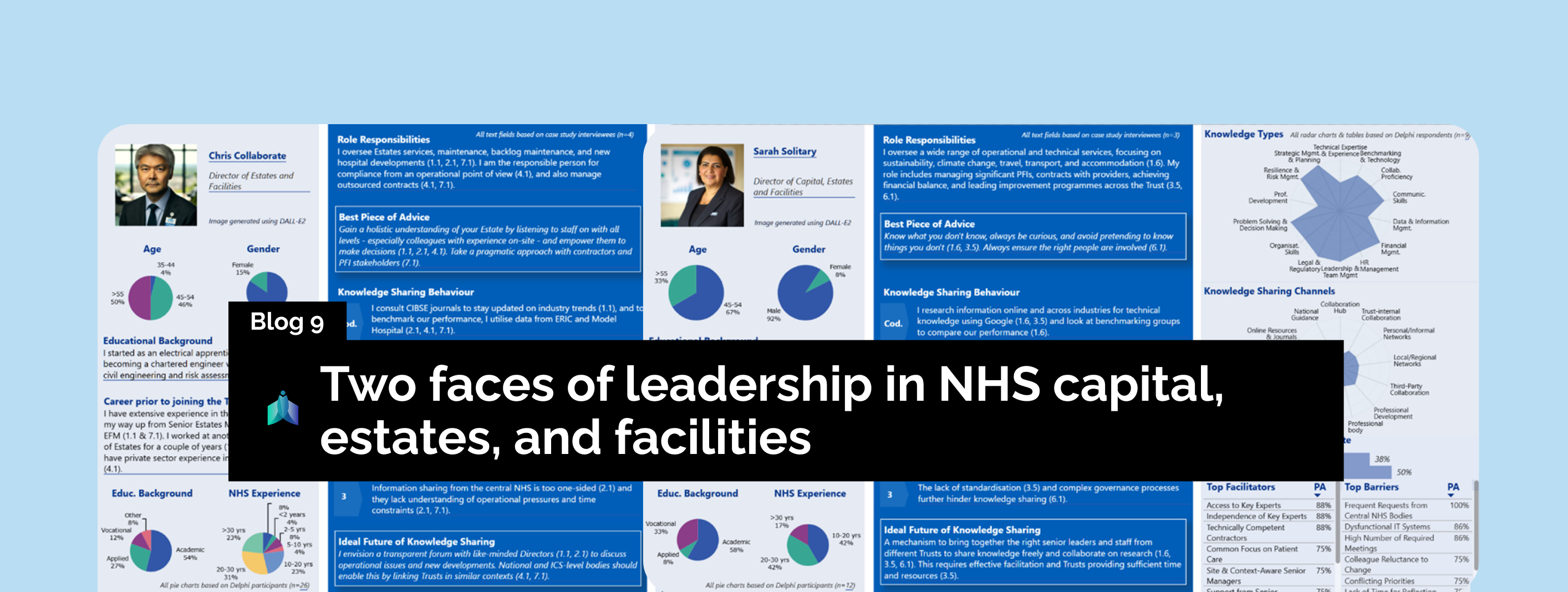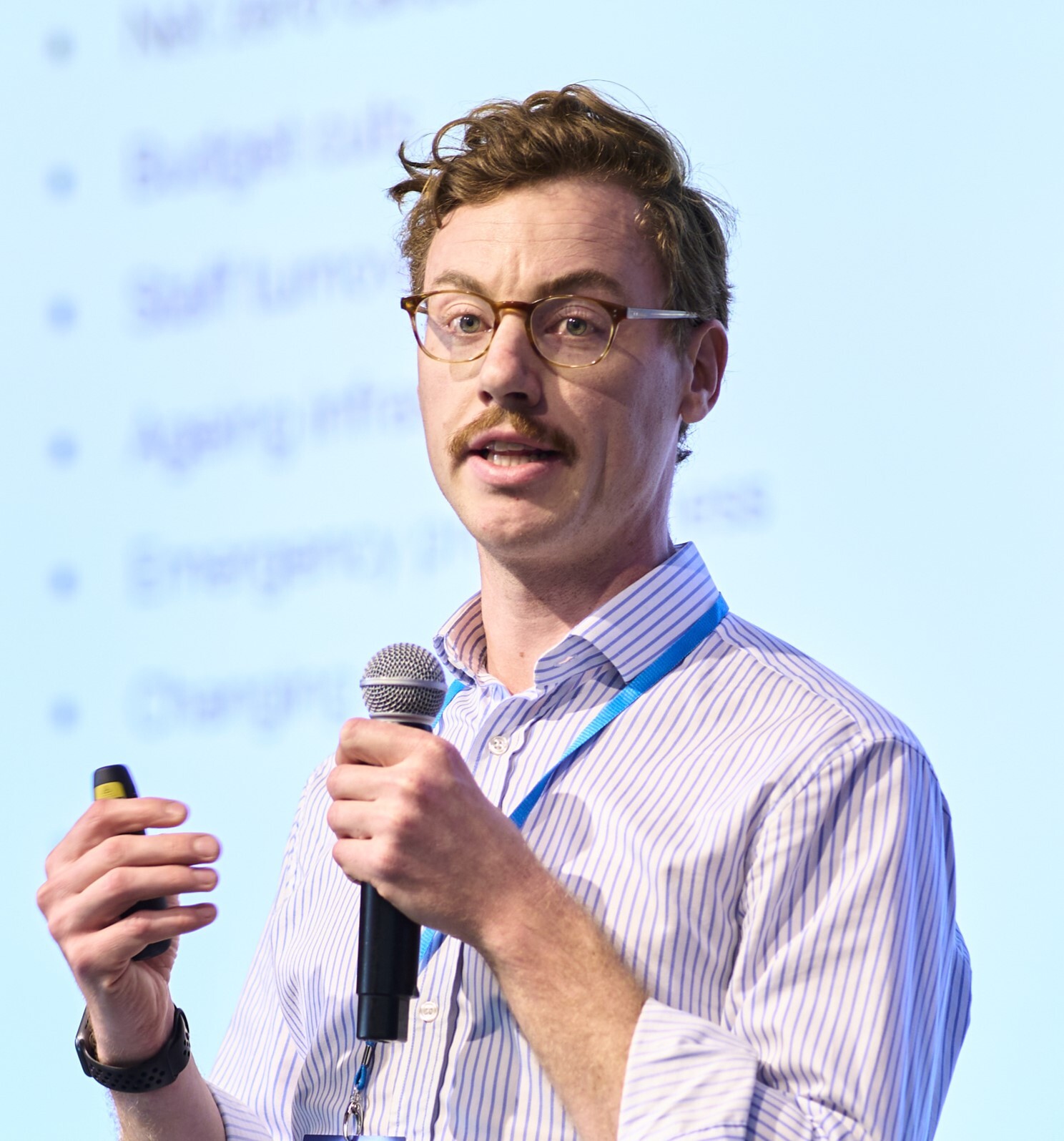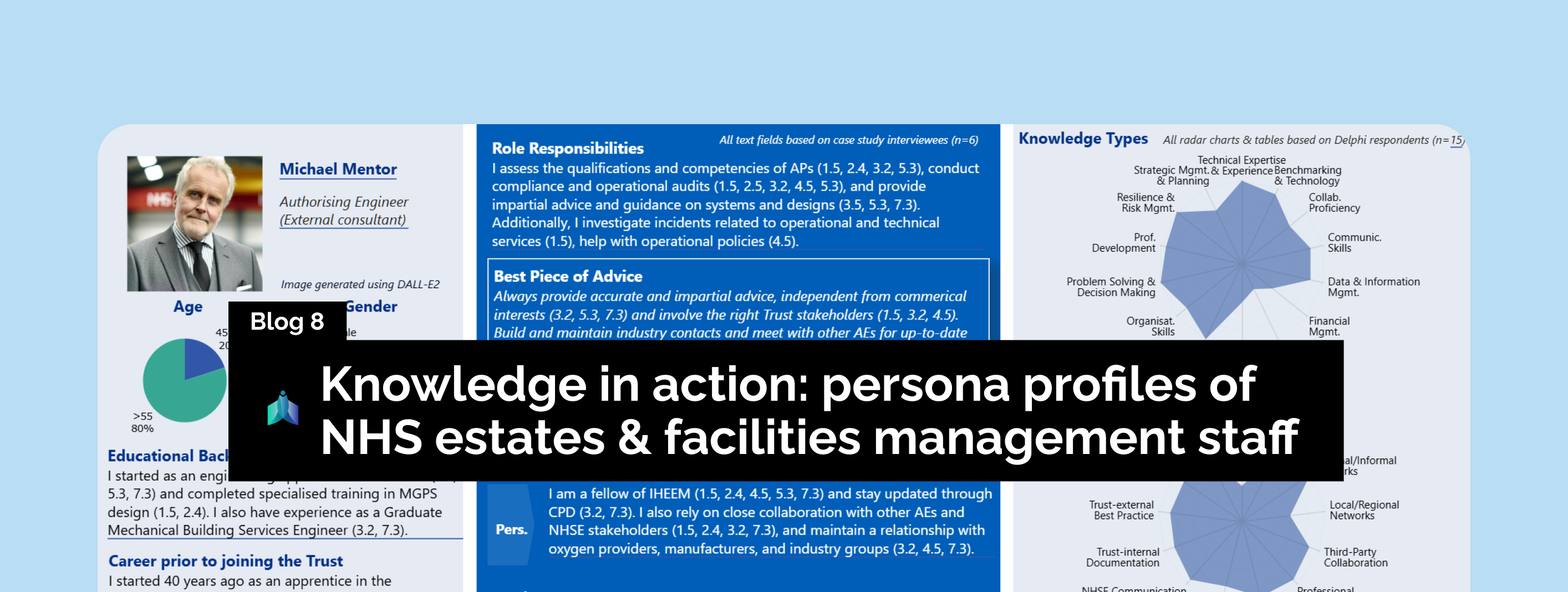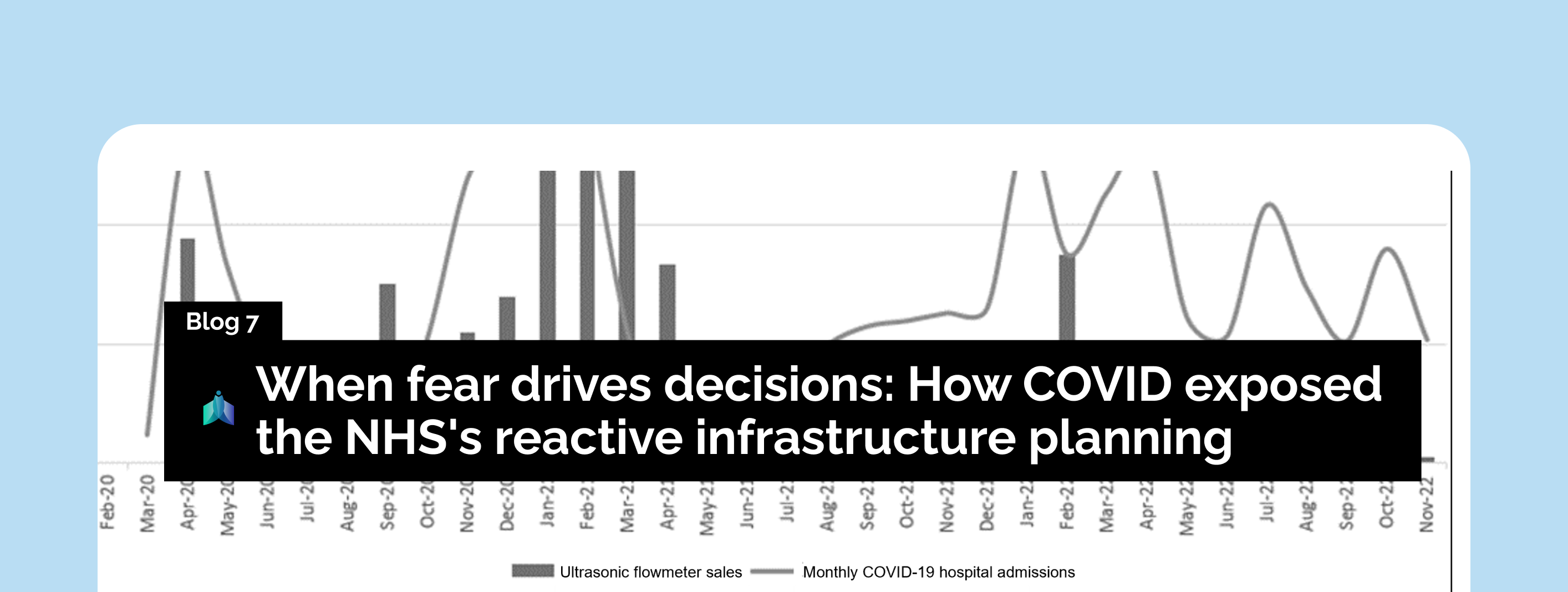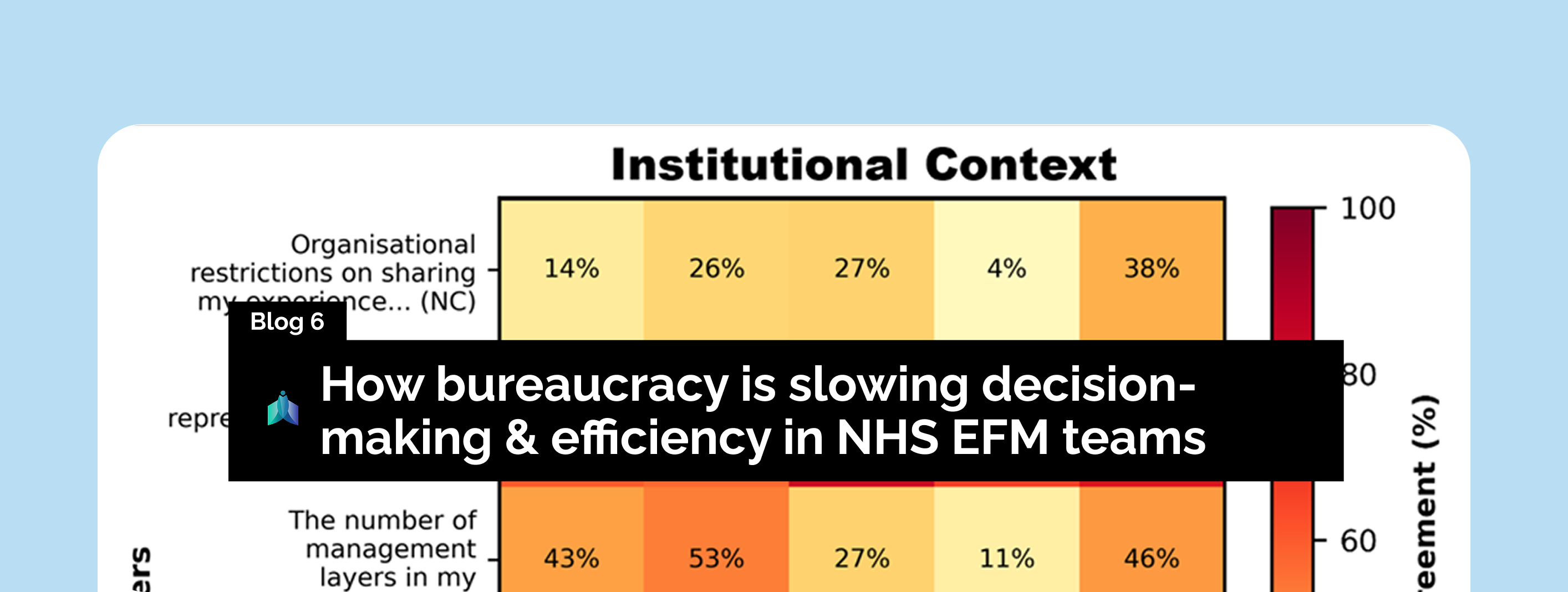Part 2: Directors of Capital, Estates, and Facilities
Directors of Capital, Estates and Facilities Management (CEFM) carry some of the broadest responsibilities in the NHS. They are responsible for capital projects, compliance, facilities, energy, and budgets that keep hospitals safe and sustainable. But not all Directors lead in the same way.
From my PhD research, two distinct leadership personas emerged: Sarah Solitary and Chris Collaborate. Both roles cover the same portfolio, yet their backgrounds and approaches to knowledge sharing are very different.
Sarah Solitary: The honest manager 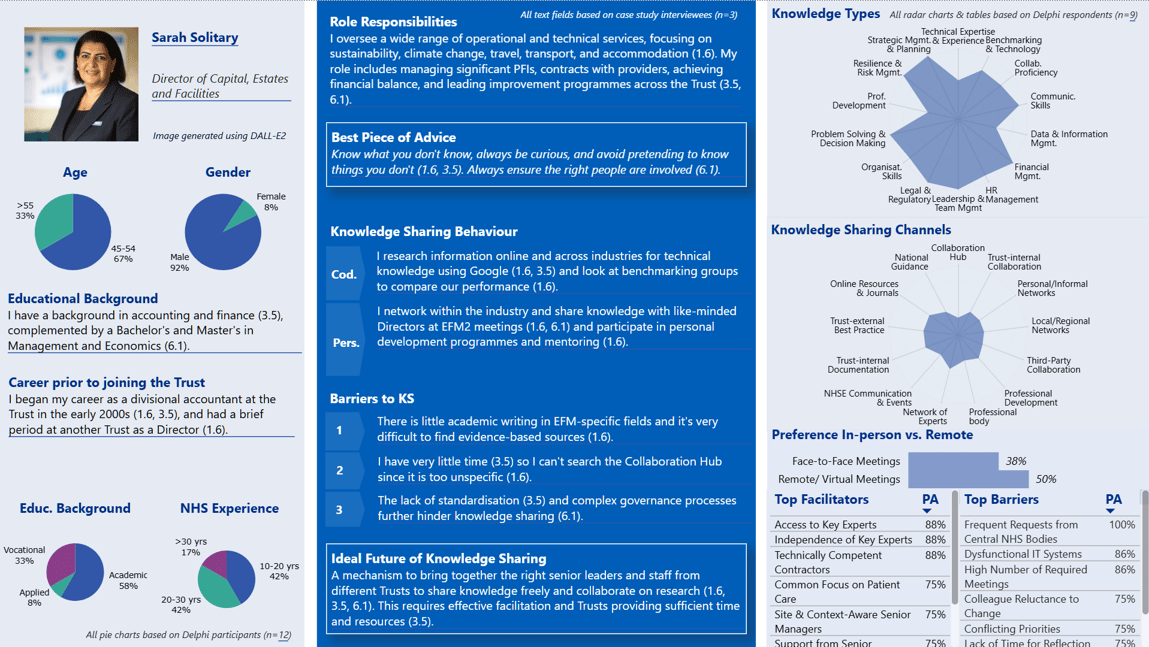
Sarah represents those Directors who arrive at EFM leadership from finance and management. She began her NHS career in accountancy before moving into estates and facilities. For her, the role is about financial balance, large contracts, and ensuring the right people are in the room when decisions are made.
Her advice to peers is telling: “Know what you don’t know, always be curious, and avoid pretending to know things you don’t.”
She openly acknowledges her limits on technical detail and depends on Authorising Engineers and technical managers for depth. Instead, she excels in leadership, mentoring, and shaping her team. When it comes to knowledge sharing, Sarah is reflective and prefers structured development programmes and peer conversations with other Directors. She is frustrated by the lack of standardisation across NHS estates and the difficulty of finding evidence-based literature in this field.
Chris Collaborate: The engineer’s director
 Chris Collaborate: a technical background, rooted in engineering and professional development
Chris Collaborate: a technical background, rooted in engineering and professional development
Chris tells a very different story. He started his career as an electrical apprentice, progressed to chartered engineer status, and knows his estate from the ground up. His leadership style reflects his own journey: practical, technically informed, and focused on professional development.
He values collaboration through professional bodies, national guidance, and active engagement with his teams. Chris sees knowledge sharing as an everyday practice. He listens closely to staff, exchanges insights across Trusts, and builds networks for solving operational problems.
His barriers look different from Sarah’s. He worries about workforce shortages and the lack of peer networks that share the day-to-day realities of running complex estates. He wants more direct ways to learn from colleagues tackling the same issues elsewhere.
Spotting the Differences
The contrast between Sarah and Chris highlights two equally valid but very different ways of being a Director of CEFM.
-
Background and Expertise: Sarah comes from finance and management, while Chris grew up through the tools, starting as an apprentice and moving into engineering leadership. Sarah’s strengths lie in budgets, contracts, and people management. Chris thrives on technical knowledge, compliance detail, and professional development.
-
Approach to Knowledge Sharing: Sarah values mentoring, leadership programmes, and reflective peer-to-peer conversations. Chris is more operational and outward-facing, turning to professional bodies, national guidance, and team discussions.
-
Barriers: Sarah struggles most with resistance to change inside her organisation and the lack of academic literature she can lean on. Chris, on the other hand, feels the pressure of workforce shortages and wishes for stronger peer networks to share practical insights.
-
Future Focus: Sarah wants a collaborative channel that supports research and strategic conversations between Trust leaders. Chris looks for forums that help with operational problem-solving and sharing new developments.
These differences show why a “one size fits all” approach to leadership support in NHS estates will never work. The system needs to accommodate both finance-first leaders and engineering-first leaders, recognising the unique strengths they bring to the role.
Where they converge
Despite their differences, Sarah and Chris highlight some common frustrations. Both struggle with limited time, poor IT systems, and conflicting priorities that push knowledge sharing down the list. Both want stronger opportunities to connect with peers. Sarah leans towards collaborative research with other Trusts, while Chris focuses on operational troubleshooting and sharing new developments.
Together, they underline a simple truth: Directors of EFM cannot do their jobs in isolation. The system needs to provide spaces where strategic leaders and technical experts can meet, compare, and learn from each other.
Why this matters for the NHS
The NHS benefits from both types of leadership. Sarah’s financially focused style brings accountability and oversight, while Chris’s technically grounded approach ensures compliance and resilience. The challenge is not choosing between them but supporting both.
That is why we are developing the INNEX Collaboration Forum, a new platform designed for staff related to healthcare capital, estates, facilities and many more. It will give people like Sarah a space to share management insights and research priorities, while also providing people like Chris with practical peer networks and operational knowledge. If you are interested in joining the forum, sign up to the waiting list here.
If you're interested in exploring how we can help transform your compliance workflows from bureaucratic burden to strategic advantage, reach out directly at carl@innex.ai.
Want to dig into the details? Read the full thesis here.
-1.png?width=431&height=115&name=Untitled%20design%20(2)-1.png)
